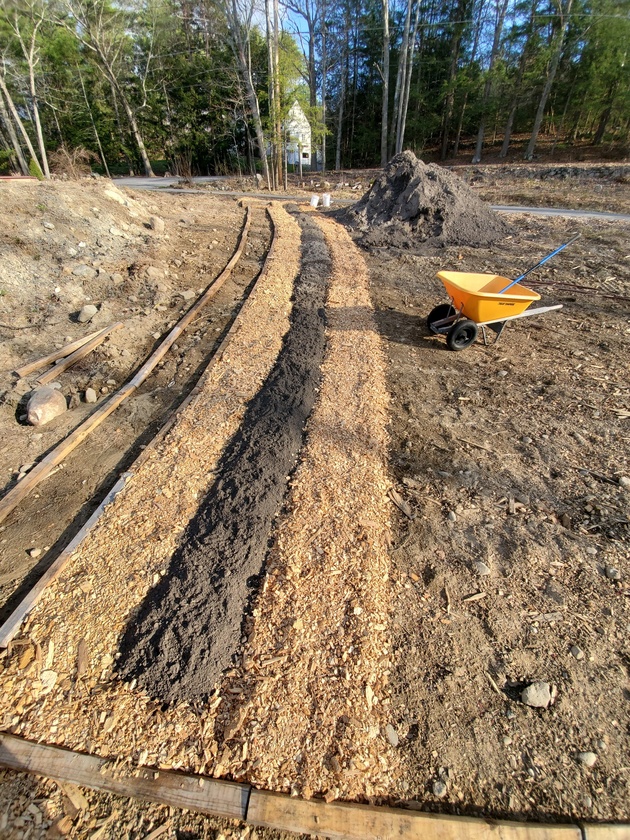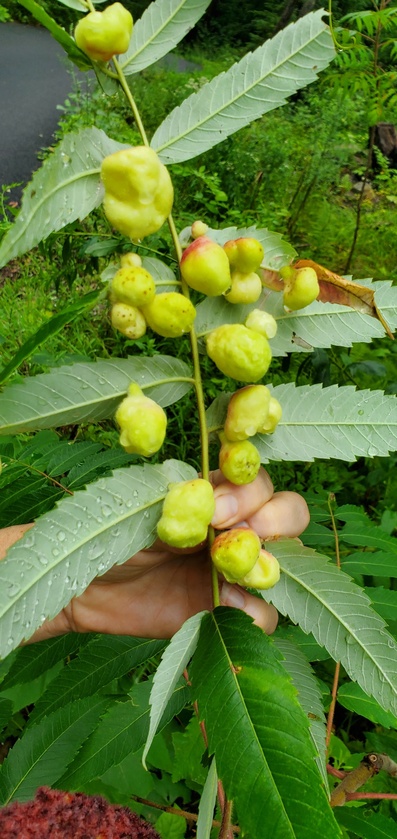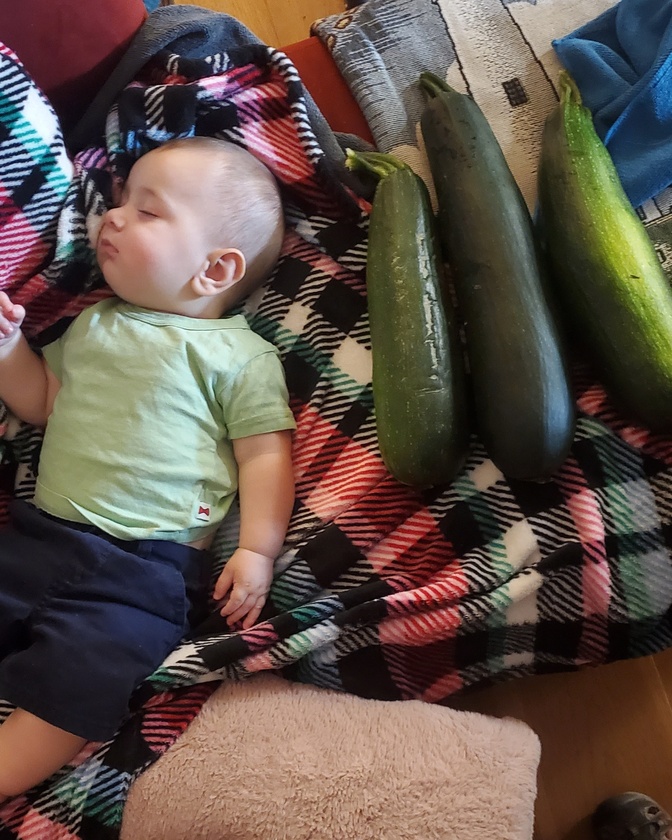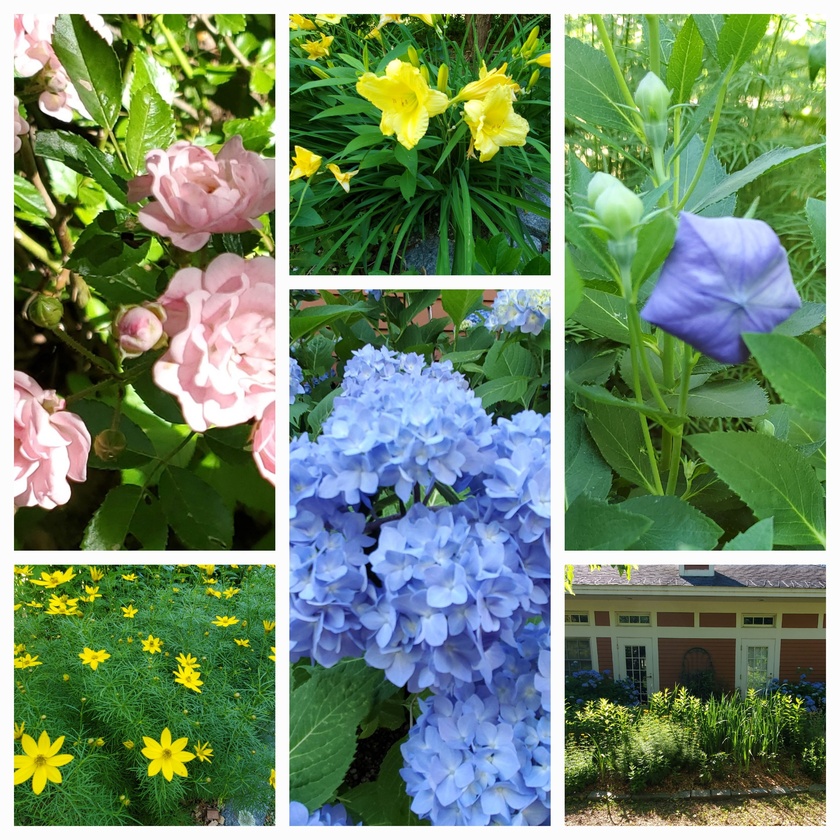This year I am able to create a new garden onto an area that was unavailable due to well digging/geothermal.
With large piles of fresh mulch, and loam, I am slowly creating alternating rows of mulch(pathway) and garden bed.
Looking at the second photo, you can see a small structure, with wood rails emanating out of two sides. This will be a small chicken coop, the rails will be hooped with deer fencing, as the chicken runs. There will be three runs in all, which will be alternated every 3 weeks or so, as they finish "working" a run. That will give each run 6 weeks of recuperation time to regrow grasses, bugs, etc.
Way over to the far right there will be the beehives, and the dark area closer to to center is a pond, which luck would have is spring fed.
Some veggies and flowers will be transplanted from my indoor green house, but most will be started from seed outdoors along the garden beds, in the 3rd week of May, when the danger of frost is gone.
There are a lot of expressions that we hear now and then; most we think we know the origin of, some we don't. For the most part we just don't ponder the origin of commonplace expressions because they are... common. The first thing I discovered when beginning to read this little gem of a book, was not only hadn't I considered where many common sayings come from, but my preconceived idea of their origin was actually wrong! Kinda embarrassing, but guessing I may not be alone in this. I thought it would be of value then to share some tidbits from this book. Audio format is nice, as you can multitask while listening to this. This is my first attempt at recording reading a book, so any constructive criticism is welcome!
There are a lot of expressions that we hear now and then; most we think we know the origin of, some we don't. For the most part we just don't ponder the origin of commonplace expressions because they are... common. The first thing I discovered when beginning to read this little gem of a book, was not only hadn't I considered where many common sayings come from, but my preconceived idea of their origin was actually wrong! Kinda embarrassing, but guessing I may not be alone in this. I thought it would be of value then to share some tidbits from this book. Audio format is nice, as you can multitask while listening to this. This is my first attempt at recording reading a book, so any constructive criticism is welcome!
There are a lot of expressions that we hear now and then; most we think we know the origin of, some we don't. For the most part we just don't ponder the origin of commonplace expressions because they are... common. The first thing I discovered when beginning to read this little gem of a book, was not only hadn't I considered where many common sayings come from, but my preconceived idea of their origin was actually wrong! Kinda embarrassing, but guessing I may not be alone in this. I thought it would be of value then to share some tidbits from this book. Audio format is nice, as you can multitask while listening to this. This is my first attempt at recording reading a book, so any constructive criticism is welcome!
Cool! I've never noticed galls on staghorn sumac. Location: SE NH.
Melaphis rhois on Rhus typhina
https://bygl.osu.edu/node/1112





















